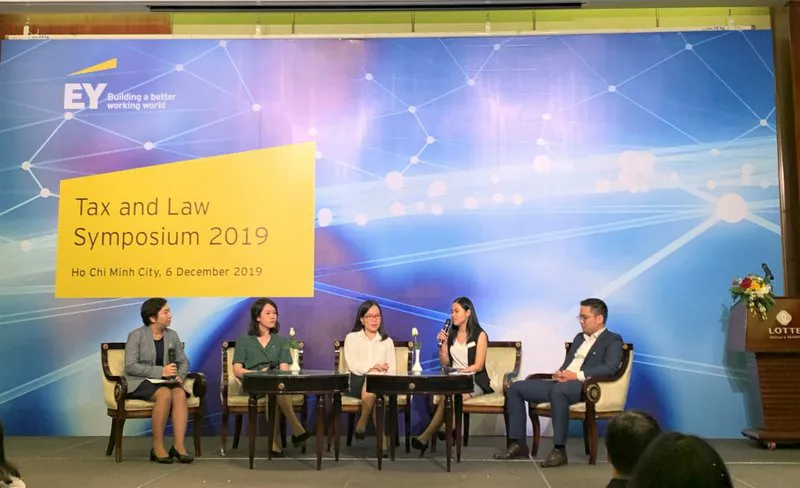Vietnamese enterprises urged to prepare for changes in tax policy
These policies not only introduce new tax treatments such as e-commerce transactions, re-auditing or the application of penalties, but also introduce new regulations of tax compliance and audit management.
A number of steps are needed for Vietnamese enterprises to comply with tax regulations and ready for changes in tax policy, as well as avoid potential non-compliance risks in a fast-growing digital business environment, according to EY Consulting Vietnam’s experts.
| Overview of the workshop. |
In order to ensure the position as one of the fastest growing economies in the Asia Pacific region, Vietnam has introduced various regulatory and tax reforms to maintain its attractive business environment, to attract foreign investment and to support local private enterprises.
New Law of Tax Administration in 2019, recent proposals on the application of International Financial Reporting Standards (IFRS) in Vietnam, as well as previous decrees on e-invoices and transfer pricing, all share the same goal of raising Vietnam tax regulations to international standards in order to have a more effective system for both government authorities and tax payers in tax administration, collection and tax dispute resolution, stated experts from EY Consulting Vietnam in a “Tax and Law Symposium 2019” workshop on December 6.
These policies not only introduce new tax treatments such as e-commerce transactions, re-auditing or the application of penalties, but also introduce new regulations of tax compliance and audit management.
Apart from handling tax issue properly, enterprises also need to focus on managing supporting documents appropriately, especially proofs of digital transactions which are increasing nowadays. It is not only about the collaboration among an enterprise’s internal functions, but also among subsidiaries and parent companies or headquarters abroad.
Accordingly, enterprises need to understand all types and processes of tax inspection, timeline and specific requirements of each type of tax inspection. Secondly, they need a complete and strict data management method, avoid losing data when changing manpower, offices or cyberattacks, among other reasons, and be ready to extract data when there are tax inspections.
In addition, an enterprise needs a methodical plan to manage tax risks and implement the best risk management practices recommended by experts such as investing on the improvement of employee performance, internal review regularly, fixing mistakes, being well-prepared before inspections. Finally, they should make appropriate choices when tackling tax disputes to ensure the compliance whilst reduce the damages which are caused by disputes.
Continuous changes in technology under Industry 4.0 wave not only have a strong impact on the business performance of enterprises, but also put a pressure on the need to digitalize their tax reporting activities in the context of aggressive application of information technology by government agencies in tax management and tax inspection activities. Enterprises, therefore, need to review and restructure their internal process in data management and exchange, in order to be able to “communicate” with digitalized tax management systems.












